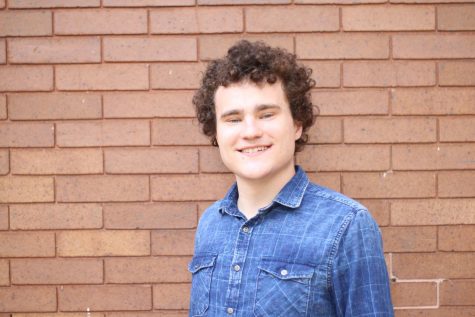Editor’s Note: Learning from the past
October 11, 2019
The Observer has been in existence for more than twice my lifetime. Reading alumni letters, I realized the founding of The Observer 50 years ago was not just a creation of a campus newspaper for the fun of it, but an inherently political act.
Paul E. Kerson, one of the founders of The Observer, said the goal of the paper was to use the First Amendment to try and stop the Vietnam war. For Case Western Reserve University students, getting a draft card in the mail and being sent to a foreign country to shoot people in an imperialist war meant to establish American dominance was a clear and present danger. The first editors, including Kerson, used The Observer to talk about the issues they cared about in a public forum. Every generation has faced challenges like the ones they faced in the 1960s, and it is the responsibility of the newspaper to give each new generation a voice. The Cleveland Climate strike, organized by third-year student Nick Vitello, is a product of the same activist spirit that moved Case Western Reserve University to block Euclid in protest of the Vietnam War forty-nine years ago.
To be a voice for students, The Observer has to be willing to publish articles that many people, even myself and the other editors, disagree with and that challenge our readers to think differently. Through the letter to the editor and other forums, we can offer our readers the opportunity to respond to writers, to foster dialogue both on campus and within our pages about the issues and ideas that matter.
Why care about what alumni have to say about The Observer? It is impossible to know where you are and the direction you are going in without knowing where you’ve been in the past. Without historical context, it is hard to make an argument about anything. The problems of the past are still here with us.
The gentrification that Doug Smock, one of the founders of The Observer, rallied against in his Editor’s Note “Let’s be good neighbors” in 1968 is still happening, with local restaurants closing and rents in University Circle rising by over 40 percent in the past year alone. By looking at how writers like Smock discussed the problem we can see that development causing the displacement and mistreatment of poor people is not a new issue in University Circle. With the knowledge that a problem is not new, we can look at how others have grappled with it in their time when trying to craft our solutions, using the thinkers of the past to inform our present moment.
Another reason to look at the thoughts of our alumni is for hope. Often, while putting the finishing touches on an issue at 5 a.m., the feeling of “why am I doing this” has crossed my mind. Reading through the alumni’s words this week, I see that I am not the only Observer Staff member to think that. In Mary Jacobs’ article “Writing on a deadline,” she describes the demoralizing devolution of trying to write the best stories possible to just filling the newspaper with anything printable once exams force many writers to stop contributing.
Instead of describing this experience as something that made her lose her passion for journalism, Jacobs said learning how to scramble for last-minute articles proved valuable in her career as a professional writer. Seeing that the skills learned at The Observer are useful not only in the confines of CWRU, but that these abilities come in handy for a lifetime of creative work is evidence that not only is The Observer good because it’s a product for the students, but that it provides valuable skills. It’s particularly reassuring to the people who work to put this publication together every week.
At a school like CWRU, it can often be hard to care about the world around you, and easier to instead go through school doing academic work and not much else. Often, it feels like students are encouraged to burden themselves with triple majors and five or six classes a semester, a schedule that makes it almost impossible for all except the most disciplined of students to participate in a meaningful way with the community. Even if students weren’t overloaded with classes, The Observer would still face struggles not dissimilar to college papers across the country.
CWRU is mainly an engineering, science and pre-med oriented campus, where the humanities are often put on the back burner. Unlike many other newspapers, we don’t have the luxury of a large, robust journalism program. Even universities that have large journalism schools, like the University of Maryland, have had to stop print publication because of financial reasons, as well as other troubles.
Many Observer staff members are not English majors, instead pursuing degrees in fields like business and engineering. It speaks to everyone’s dedication that every week (and at one point even twice a week) for the past fifty years, students at CWRU could look forward to seeing a brand new copy of The Observer that hopefully inspires them to think about issues in a new way and exposes them to people and ideas that they would never encounter otherwise.



